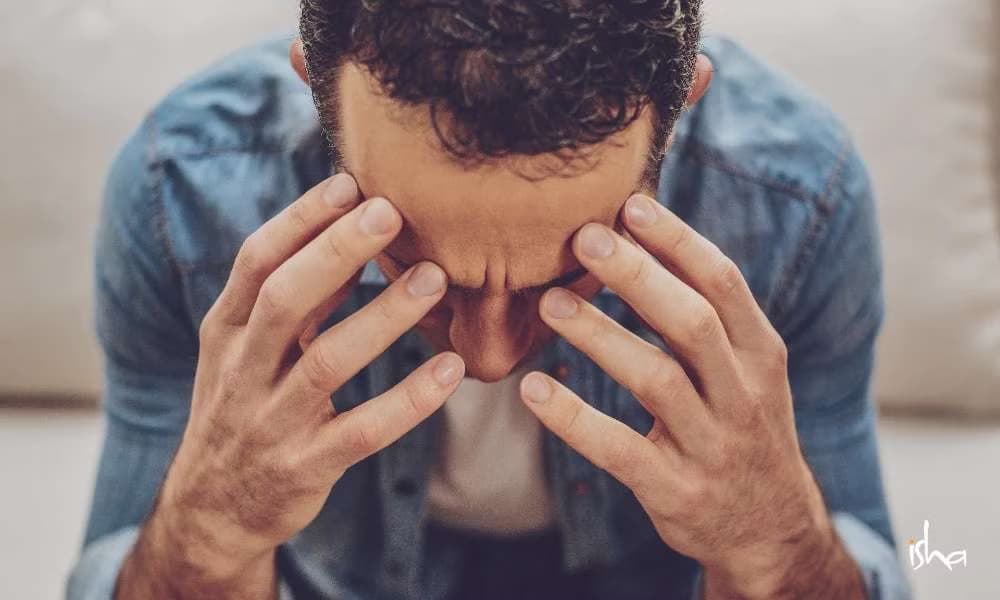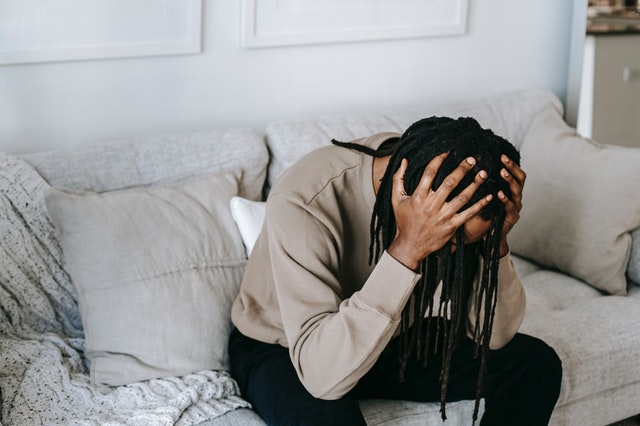If you’ve done any research into anxiety treatment, you’ve most likely seen information about using  medication. But what if you don’t want to rely on prescriptions and are curious about other anxiety treatment options? Or perhaps you’re concerned about the side-effects of drugs or becoming too reliant on them?
medication. But what if you don’t want to rely on prescriptions and are curious about other anxiety treatment options? Or perhaps you’re concerned about the side-effects of drugs or becoming too reliant on them?
Good news, there are many ways to access anxiety treatment without medication. These effective therapy approaches include both techniques to manage and control anxiety at the moment, as well as long-term therapy treatment methods.
Consider how these 7 most effective approaches can help you treat anxiety:
1. Anxiety Treatment Without Medication Starts with a Deep Breath
The first place to start when it comes to anxiety treatment without medication is your breathing. How you breathe is very important in managing anxiety and staying in control. Without practice, your breathing can escalate quickly during anxious periods. This actually contributes to making your anxiety worse. When you feel short of breath, it’s scary. So you gasp even more to breathe. Unfortunately, hyperventilation only adds fuel to the fire. To solve this problem, incorporate a breathing practice into your everyday routine.
2. Do Something
Physical movement and exercise is another helpful way of treating anxiety without medication. This is the case for several reasons.
- Movement helps distract you from the source of your anxiety
- Dopamine and serotonin, natural mood enhancers, are produced
- Physical exercise provides a release from built-up tension and stress
Now, you don’t have to run a marathon every time you feel anxious. Instead, it might be that getting up and going for a quick, brisk walk will do the trick. Also, find ways to incorporate mild, moderate, and strenuous exercise throughout your week to get the most benefit. However, make sure to check with your medical provider before starting any new exercise regimen.
3. Practicing Acceptance
Oftentimes, the source of your anxiety comes from pushing back against what life has thrown your way. When you face inconveniences or annoyances your resistance can blow up small events into bigger problems. To counter this, practice acceptance. Acceptance doesn’t necessarily mean being OK with the inconvenience. It does allow you to take things less personally. A a result, you’ll be in a better mindset and more capable of finding solutions.
4. Pets and Anxiety Treatment
A pet can be a great way to manage anxiety! In fact, research shows that having a pet in the home can do wonders for your mental health. A pet makes you feel better, even when the day isn’t going your way. And, if you have a pet such as a dog, they can express affection towards you too. This helps keep you present and focused on something that really matters to you, rather than anxiety.
5. Get Those Thoughts Out of Your Head
Sometimes all of those anxious thoughts and feelings build up inside you until they reach crisis levels. To prevent this, there are several ways to get negative thoughts out of your mind. Anything creative that involves you engaging with a creative medium will work. For example, the following activities are helpful:
- Drawing or sketching
- Painting
- Playing music
- Journaling or writing
- Sculpture
Creative arts not only allow you to physically do something. It can also act as a channel to direct the anxiety swirling inside you.
6. Coping with Humor
Who doesn’t feel better after a good laugh? Laughing about a situation will help you stay positive. It’s also a great way to physically release anxiety from your body. However, there is a caveat; self-deprecating humor is not going to be a good idea long-term. Why? Self-deprecating humor doesn’t reinforce your strengths or power.
To cope with anxiety give your anxiety a funny name. This can helps make it less burdensome. Give yourself permission to laugh when you realize you’re being anxious. It’s okay! Just remember to keep your humor positive and affirming, as opposed to negative and self-critical.
7. Accessing Neurofeedback Therapy
Finally, an anxiety treatment without a medicinal approach can include neurofeedback. This biofeedback technique uses data collected from an EEG machine to determine brainwave patterns when you feel anxious. Once that has been established, you and a therapist work together to coach your brain to respond differently to anxiety. Then, you can see the results in real-time through the EEG, and that helps reinforce the learning your brain needs.
Anxiety treatment without medication is possible. There are several effective therapeutic approaches out there that don’t require drugs. Rather, they incorporate lifestyle choices, mindfulness techniques, your creative side, and humor. Consider neurofeedback therapy too. If you are interested in how these anxiety therapy options can work for you, talk to a counselor today about anxiety treatment soon.





